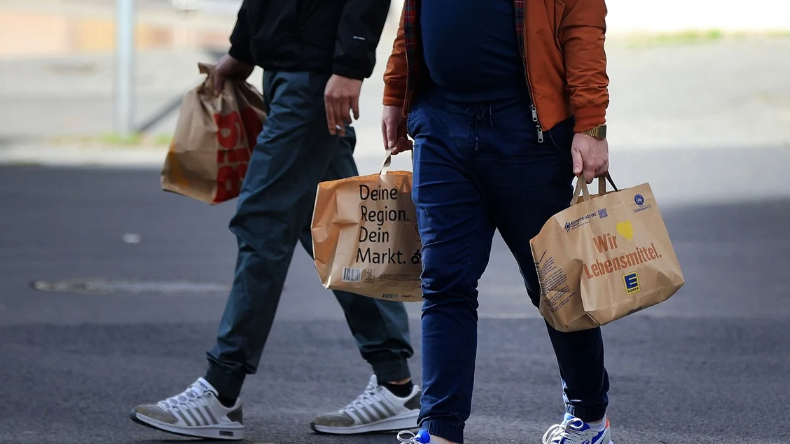
Soaring cost-of-living crisis brings back 1970s shopping habits in Europe
Nearly three-quarters of European consumers are cutting back spending on everyday items, including food, to make ends meet amid a worsening cost-of-living crisis, Bloomberg reports.
A new survey shows that 71% of consumers across six key markets in Europe have already made significant changes to how they shop as they battle to cope with inflation that is reaching levels not seen in four decades.
The report by IRI, a data analytics and market research company, also revealed that 58% of consumers already report that they have cut down on essentials, with 35% dipping into their personal savings and taking out loans to pay bills.
“It’s evident that consumers’ willingness to spend is suffering and the direction of travel is likely to worsen — with the likelihood of further sharp price rises given high input costs and volatile energy price,” said Ananda Roy, global senior vice-president at IRI.
Soaring prices of food, fuel and energy are eroding household budgets across Europe while Russia’s stalled energy shipments are forcing households and industry to brace for potential outages this winter. Consumer confidence across the continent remains close to a record low and there are growing fears that the euro zone is heading for a recession.
The severe “inflation fatigue” facing the European consumer is forcing a range of “coping behaviours” not seen since the austere 1970s and 1980s, Roy said. This includes missing meals, switching to discount grocery chains, buying private-label items and reduced products, as well as out-of-date goods.
While out-of-season produce that is available all-year round may still be accessible to affluent customers, the range offered in the mid to lower end of the supermarket chains will become “significantly narrower”.
Changes are not just happening in the weekly grocery shop. Just over half of Europeans in IRI’s study — which surveyed 3,000 global consumers — said they plan to order fewer food deliveries, and 47% said they will eat out less at restaurants, bars or cafes.
With no sign of inflation dropping in the near future, retailers and consumers will have to continue to adapt.
“There are several difficult decisions for shoppers on the cards, and retailers and brands will do well to take a long and hard look at how they’re going to respond to shopper needs,” Roy said.
Newsfeed
Videos






























